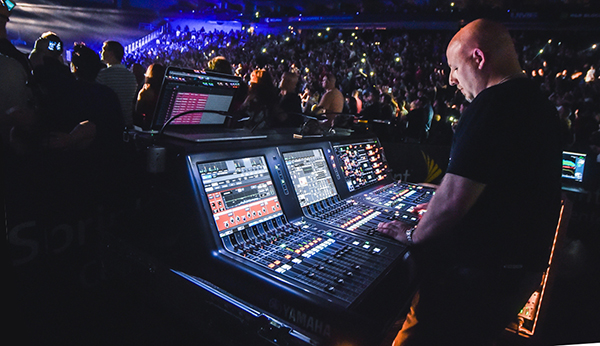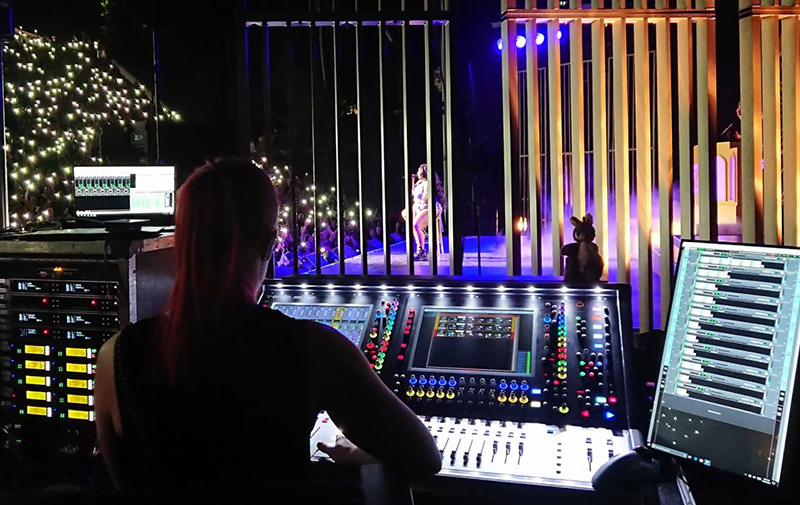
MONITOR Pros
Connection. When it’s going well there’s a sense of kinship with the band, and it’s satisfying to earn and honor the trust of musicians.
Camaraderie. You’re down among the action with the rest of the backstage crew, and there’s a team vibe in pulling off a great show.
Relationship with the performance. Responding in real time to requests and changing circumstances means that you’re intimately acquainted with, and responsible for, delivering a consistent audio environment that lets each performer relax and do their job of raising the roof.
The brain challenge. Intensely focusing on many different people / aspects at a time taxes and expands your mental capacity – I can literally feel different parts of my brain keeping a handle on my tasks and cues during the show, while never taking my attention off the musicians.
Opinions are important. Unlike FOH, those that have opinions about a mix are concerned with their own personal mix, so they’re welcome to ask for whatever changes they need.

MONITOR Cons
Lack of artistic licence. Occasionally a performer wants the mix that you’d do for for yourself, and you can mix intuitively, which is a creative dream. But monitor mixes are as much function as form, and performers need what they need. While it’s within your remit to gently suggest and steer (especially if they’re inexperienced) ultimately, it’s their mix, not yours.
On the firing line. If someone’s having a bad day, the monitor engineer will almost certainly know about it.
Pressure. Yes, this was a con for FOH too, and both ends of the snake are subject to it, just in different ways. Bands are essentially naked up there – they’re entirely dependent on the monitor engineer to hear their performance, so you have to be OK with that level of personal responsibility.
Staying consistent. As with FOH, you’re subject to variable acoustics (although to a lesser extent), and you also have to deal with the vagaries of the RF environment. If you like your job then it’s mostly it’s an enjoyable puzzle, but there are days when there are no perfect solutions.
Hangers-on. While most of the entourage will want to watch from out front, there are some who want to hang out at stage-side, and they get in the way. I’ve had to “accidentally” step back from the desk farther than usual to make it clear that they’re in my workspace, or politely ask them to go elsewhere if they want to chat to their friends.
In Perspective
FOH, monitors, and indeed the ever-evolving art of PA system engineer –as with all things in life, it’s different strokes for different folks. In my experience it’s wise to gain a strong level of competence in all aspects of live audio before you consider specializing – a house is built from the ground up, after all.
Over time, some folks develop a leaning towards a particular role while others might prefer to stay multi-functional; there are benefits to either approach. Personally, it’s well over a decade since I last toured as a monitor tech rather than an engineer, and almost 20 years since I last mixed FOH. I enjoyed all of these roles at the time, but mixing monitors has my heart.
Heads or tails – what’s your favorite role on the road?
